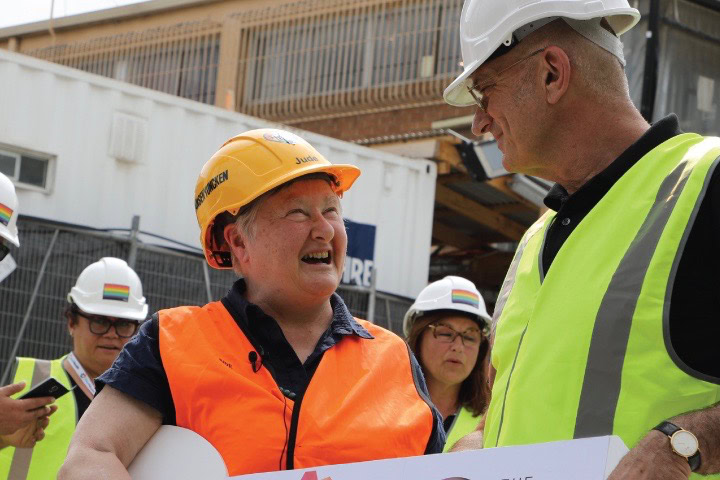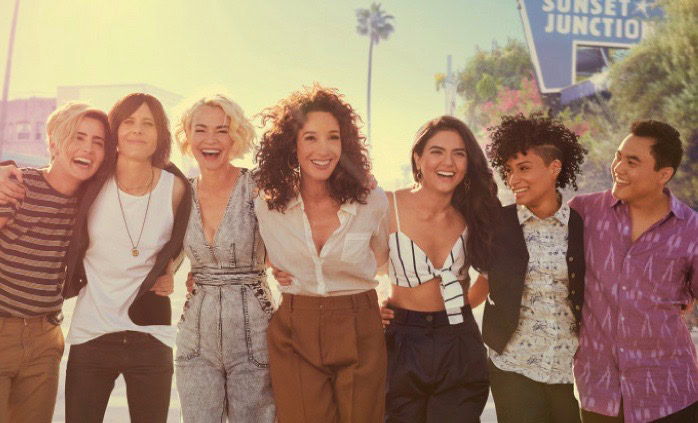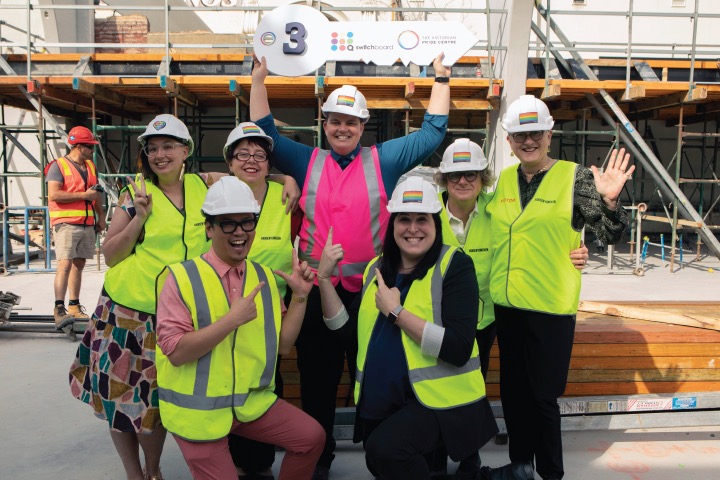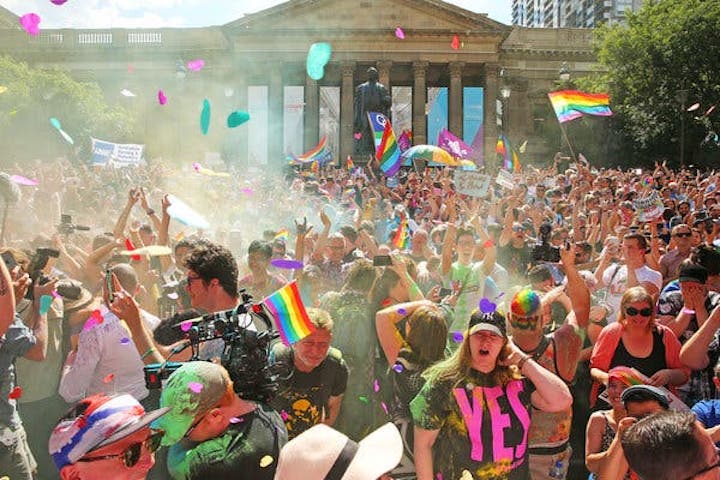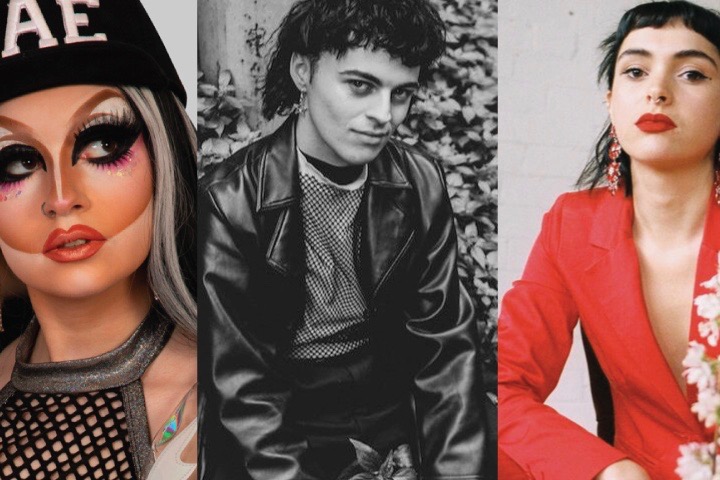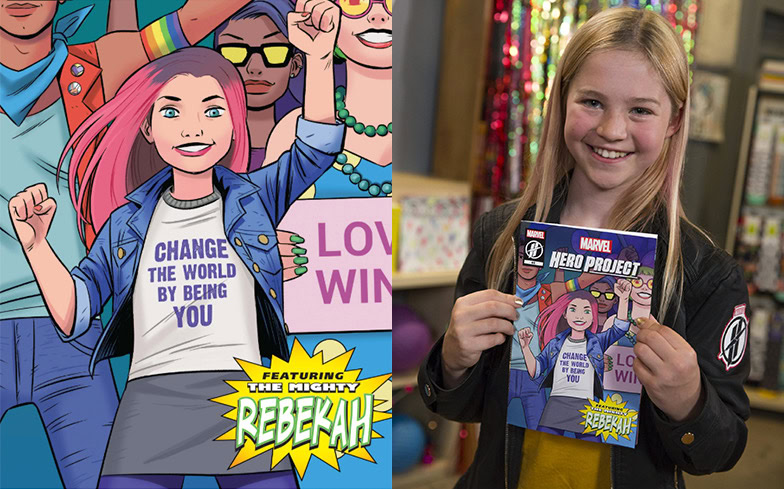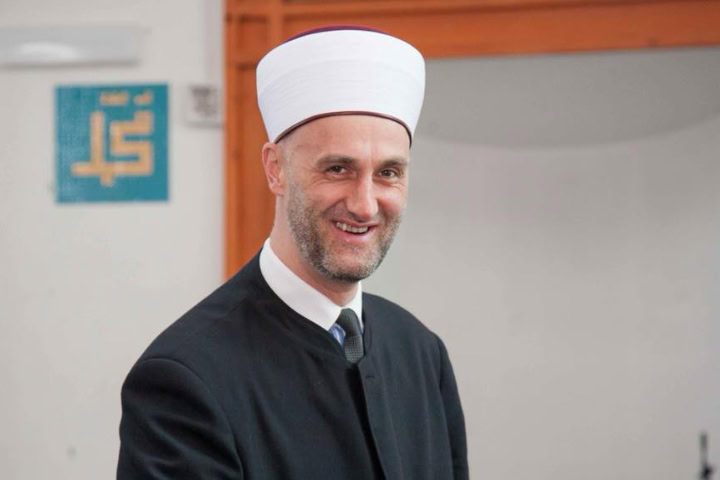
Sarajevo’s first gay pride attracts more than 2000
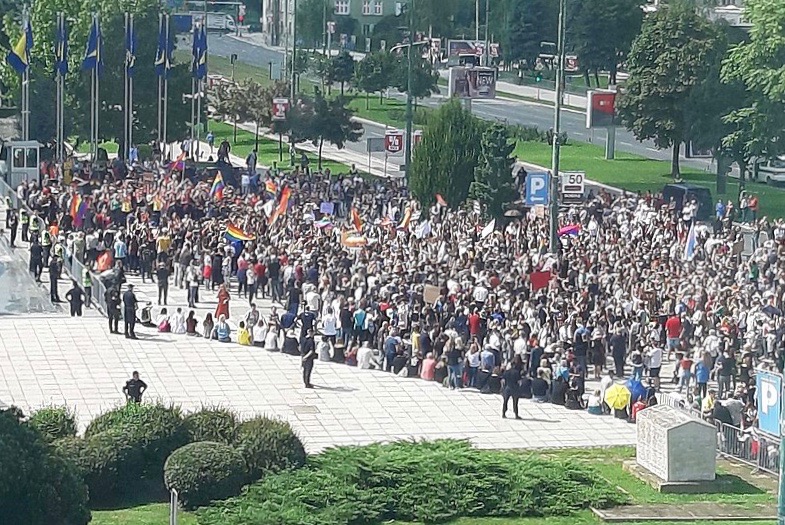
The capital of Bosnia and Herzegovina, Sarajevo, has held its first gay pride parade on Sunday with more than two thousand people marching to protest hate crimes suffered by the LGBTIQ community.
The latest major Balkan city to hold a pride parade, Sarajevo saw LGBTIQ activists march on 8 September amidst growing aggression and protests from powerful conservative voices in the country.
While Bosnia and Herzegovina LGBTIQ community members have long faced widespread attacks and harassment, participants proudly marched for 1.5 kilometres while being led by a pink banner with the words ‘Ima Izac’, which translates to ‘Coming Out’.
Activist and parade organiser, Lejla Huremovic, told the large gathering the parade’s visibility sends a message that the violence and prejudice being faced by community members must end.
“Today, we say louder than before that we will fight with bravery and dignity for our lives [to be] … free of fear and violence,” she said.
“If there was no violence I wouldn’t be here today.
“This gives us strength and faith that prejudice against us will start to wane and that it will become better for all of us.”
Over 1,100 officers including riot police sealed off the parade route in the city centre – which started at monument commemorating the liberation of the city at the end of WWII – to protect marchers from a counter-protest of about 150 people in a nearby park.
While police spokesman, Mirza Hadziabdic told AFP that the event “passed off without incident,” a history of disturbances at LGBTIQ events in the traditionally conservative country threatened to dampen the festivities.
In 2008, eight people including a police officer were assaulted at the Queer Sarajevo Festival when counter-protesters attacked festival participants. In 2014, a dozen masked men stormed the Merlika Queer Film Festival, injuring three people and declaring that “there will be no Pride parade in Sarajevo”.
While Bosnia officially bans discrimination based on sexual orientation, it does not officially recognise same-sex partnerships.
21-year-old parade-goer, Matej Vrebac told AFP that thee first pride parade allowed community members to hope for a better future.
“The day we will speak of adopting children is still far off. But today is the first Bosnian Gay Pride and we hope in the future to speak about all that,” he said.
One of the notable attendees was the openly gay US ambassador to Herzegovina and Bosnia, Eric Gordon Nelson, who has been the target of homophobic abuse. Nelson was depicted on posters with the slogan ‘gay is not OK’ in the Sarajevo suburb of Dobrinja near a university on Friday.
The site of the 1914 assassination of Archduke Franz Ferdinand, which sparked World War I, and later the host of the 1984 Winter Olympic Games, Sarajevo’s rich history has been marred by war and dispossession, as well as growth and prosperity.
During the Bosnian war and the breakup of the former Yugoslavia, Sarajevo suffered the longest siege of a capital city in modern history which spanned 1,425 days and lasted from 1992 to 1996.
Since then Sarajevo, whose population of 550,000 is more than 80 per cent Muslim, has been rebuilding itself economically, politically and socially.
